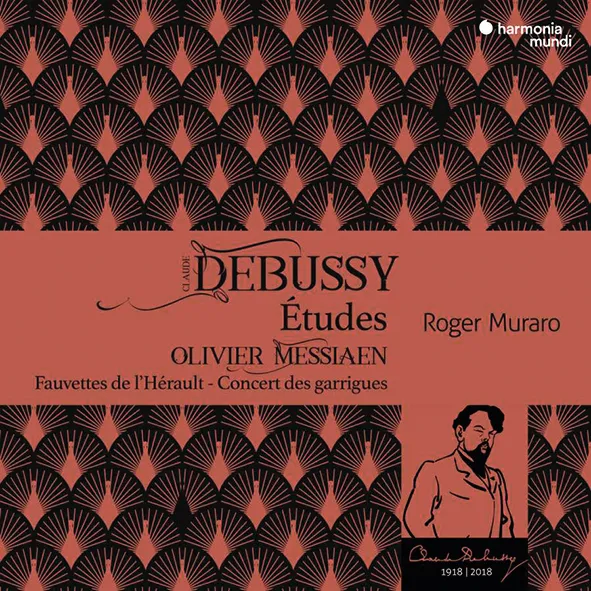
Debussy 12 Etudes, Books 1 & 2; Messiaen Fauvettes de l’Hérault – Concert des garrigues Roger Muraro (piano) Harmonia Mundi HMM 905304 73:06 mins
Debussy’s two-book set of 12 Etudes combines quicksilver virtuosity with a parallel interest in ‘studies’ in musical ideas rather than pure technique; the finest pieces have the same kind of understated poise and immensity as the Images, though in a more abstract way. Roger Muraro’s pleasingly rounded, unexaggerated piano tone (Debussy would have approved) is matched by a likeable directness of manner. Memorable highlights here include the dreamy, Albéniz-like sonorities conjured in ‘Pour les tierces’, and Muraro’s scintillating high-speed accuracy in the without-thumbs figuration of ‘Pour les huit doigts’.
Recorded in a different venue and (surely) on a different piano, Fauvettes de l’Hérault – Concert des garrigues is Muraro’s assembly of some of Messiaen’s sketches for a piano concerto dating from the early 1960s. The result, amounting to a 25-minute, three-movement supplement to Catalogue d’oiseaux, convinces strongly. Muraro tells us that the piano concerto idea took final shape as the Japan-inspired Sept haïkaï of 1964, a situation more than reasonably justifying his deployment of the remaining birdsong material – featuring assorted fauvettes (warblers) from France’s L’Hérault region – as a solo piano work. His playing beautifully mirrors the unique soundworld, at once pungent and crystalline, of Messiaen’s keyboard idiom, and is phenomenally accurate even by today’s ultra-high technical standards. There is a clear difference between the two separate acoustics and the recorded balance in each (quite a bit closer in the Debussy), but this isn’t extreme enough to be an issue; nor, fortunately, are Muraro’s frequent, but not-too-sharp intakes of breath!
Malcolm Hayes